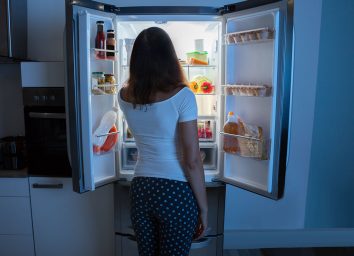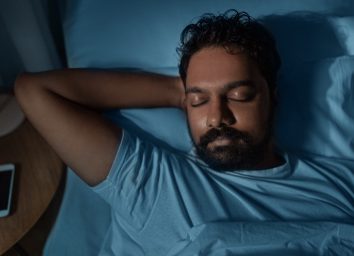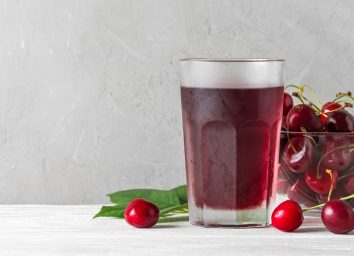Surprising Side Effects of Eating Before Bedtime, Say Dietitians
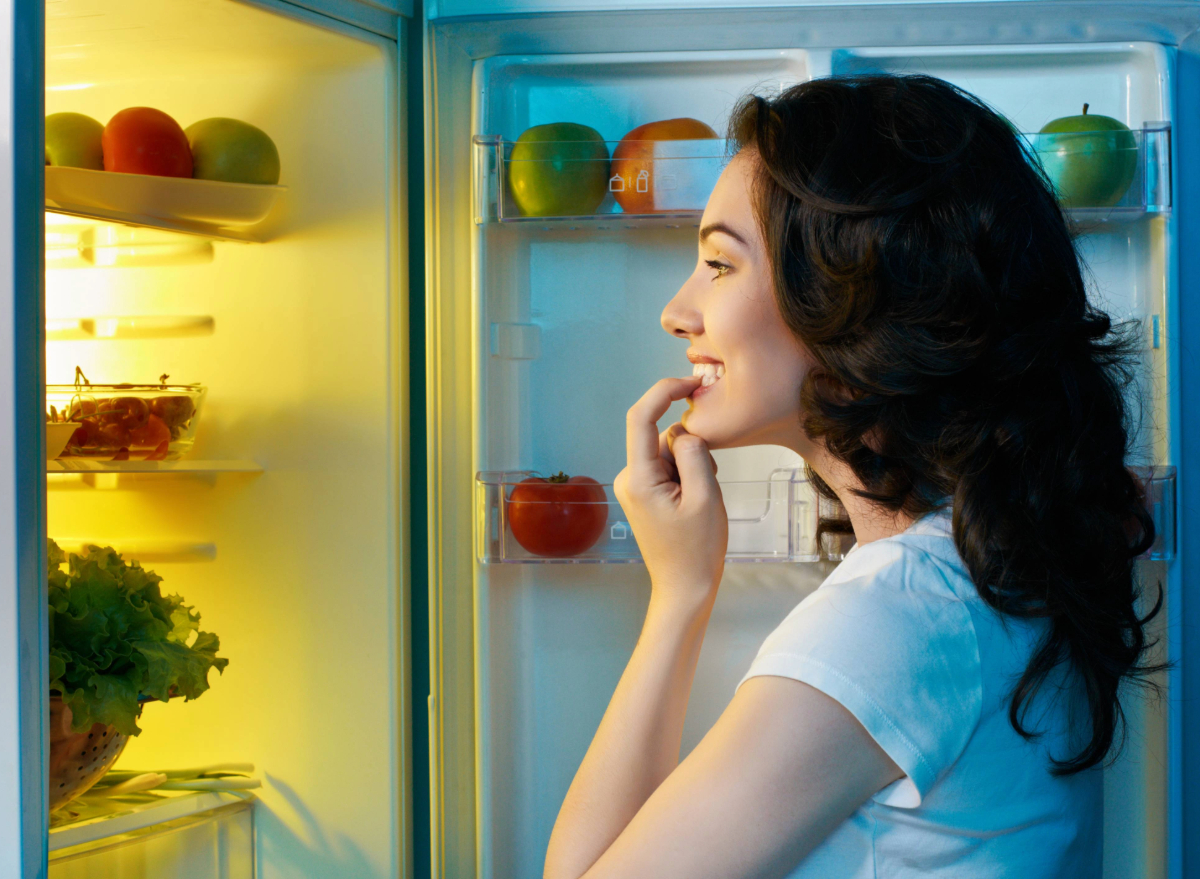
There's nothing more tempting than a late-night visit to the refrigerator. You finished dinner hours ago, you're watching your favorite show on Netflix, and the leftover slice of cake is calling your name.
So what really happens when you indulge in a snack before bed? Is it a big deal, and can it actually affect your quality of sleep?
"The nutrients you eat, or don't eat, impact almost every area of health, including your sleep," says Trista Best, MPH, RD, LD "and your overall sleep quality can be affected by what and when you eat."
Read on to learn what our expert dietitians have to say about the side effects of eating before bedtime, and for more healthy eating tips, make sure to check out The 7 Healthiest Foods To Eat Right Now.
It may help regulate your blood sugar

According to Amy Goodson, MS, RD, CSSD, LD author of The Sports Nutrition Playbook and member of our expert medical board, eating before bed may actually help regulate your blood sugar.
"For those individuals with Type 2 Diabetes, a nighttime snack of fiber and protein might help regulate your blood sugar overnight," says Goodson, "and this is because the protein works to help keep you blood sugar more stable, which could help regulate your levels in the morning."
You may experience acid reflux or indigestion

Goodson warns that if you're someone who already suffers from acid-reflux or GERD (gastroesophageal reflux disease), then eating right before bed may cause you a lot of discomfort.
"Eating late at night and laying down soon after can exacerbate acid reflux/GERD symptoms, causing indigestion reflux," says Goodson.
Because of this, Goodson suggests eating at least a few hours before bedtime to avoid any discomfort and ensure a good night's rest.
You won't go to bed hungry
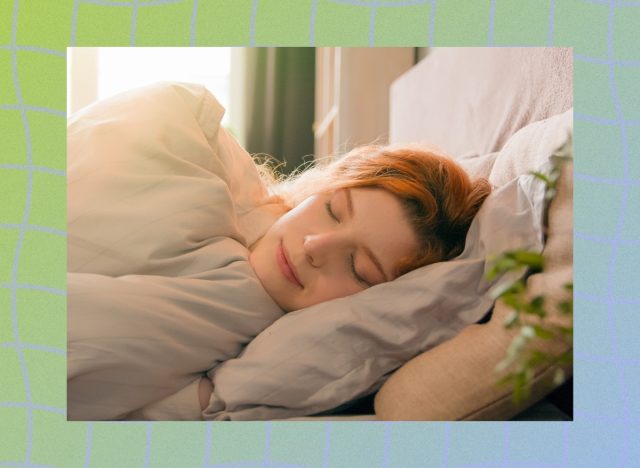
Yes, this one may seem pretty obvious. If you eat before bed, you won't be hungry, right? But what some people might not think about is that going to bed hungry or on an empty stomach can actually make it much harder to fall asleep.
"If you have trouble falling asleep, a protein-rich snack might help keep you more satisfied," says Goodson, "so you can try a protein before bed like string cheese, a spoon of peanut butter, or glass of milk to see if that helps.
You might fall asleep faster
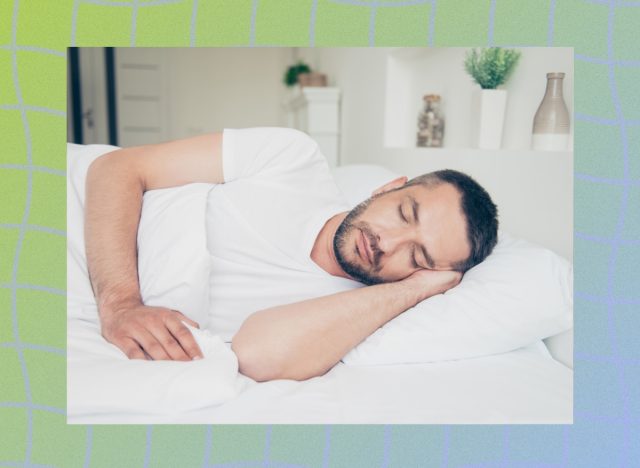
The good news is that there are certain foods that can help you fall asleep faster and have better quality sleep.
According to Best, foods like almonds, walnuts, and bananas are rich in melatonin, which is a natural hormone that can help with sleep.
Sylvia Melendez-Klinger, RD also suggests snacking on almonds, walnuts, or pistachios in particular, because "not only do these foods have melatonin, but they contain magnesium and zinc as well, which together can help people get a better night's sleep."
Best warns that when snacking before bed, you may want to stay away from refined carbohydrates when possible.
"Simple carbs reduce serotonin in the brain, which is the chemical responsible for inducing sleep," says Best, "so foods like pastries, crackers, chips, and pasta should be avoided close to bedtime."
Read these next:
